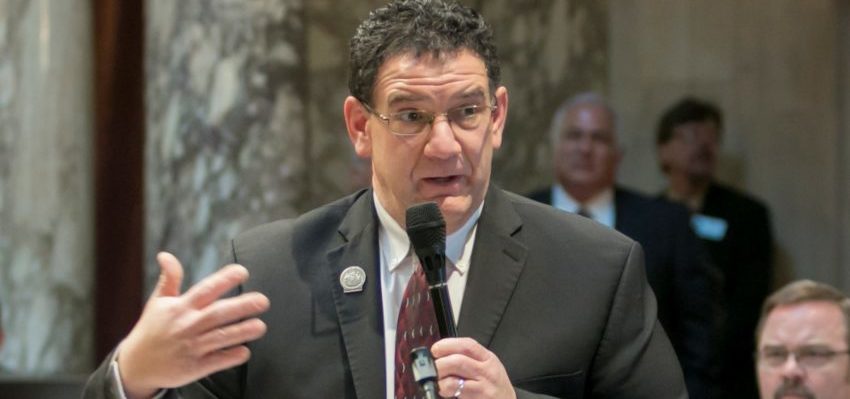
MacIver News Service | April 30, 2019
By M.D. Kittle
MADISON, Wis. — Prisons are filled with people who cannot read, and dyslexia may play a pronounced role in the incarcerated population.
Experts point to a study that found 80 percent of prison inmates at the Huntsville, Texas prison were functionally illiterate — 48 percent of those prisoners were dyslexic.
The problem and its consequences persist nearly 20 years after the original study was conducted.
Some 40 states have enacted laws to enhance screening and teacher training, to track younger students with difficulty learning to in read or interpret words, letters, and other symbols before they are trapped in the frustrating — and destructive — world of illiteracy.
Wisconsin is not one of those states.
State Rep. Bob Kulp (R-Stratford), chaired the 2018 Legislative Council Study Committee on the Identification and Management of Dyslexia that examined dyslexia and its effects. The committee, which has taken some emotional and, at times contentious, testimony on the subject, came up with some legislative proposals aimed at better reaching students with such reading disorders.
The stakes are high, Kulp said, and Wisconsin is falling behind.
“The prison connection is certainly one of the connections,” the lawmaker told MacIver News Service last week. “What I know is that in 1995, we were third in rank among states when it came to fourth-grade reading scores. By 2009, we had slid to 30, but now we’re sitting at No. 34.”
Nearly 560,000 Wisconsin students, 65 percent, were not reading at a proficient level in 2017, according to state data.
Kulp said the raw scores didn’t decline; other states found better ways to reach students with reading disorders.
Experts say trained screeners can tell with 90 percent accuracy whether a kindergartener will be in the bottom 10 percent of second-grade readers.
Dan Gustafson, a Madison child psychologist who also is dyslexic, told the committee that it’s time to get back to the basics of sound science, phonics — which so many schools abandoned many years ago.
“The tragedy is that we’ve had a system that’s really based on what we could think of as a wait-to-fail system,” Gustafson told the committee.
Congress last year passed a bipartisan criminal justice reform bill known as the First Step Act. President Trump signed it into law. The legislation includes a provision creating a program to screen inmates for dyslexia “so that, with the help of knowledgeable professionals and audio technology, incarcerated individuals could obtain their GED, get a job once released, and become productive members of society,” wrote U.S. Sen. Bill Cassidy (R-La.), a key proponent of the bill.
Kulp said the committee concluded its work with two legislative proposals. The first would create a dyslexia guidebook for schools. The second calls for a dyslexia specialist at the state Department of Public Instruction who would work with Wisconsin cooperative educational service agencies in identifying dyslexia and assisting with best literacy practices.
“That is a little bit of a difficult lift because conservatives tend to say, ‘Let’s not expand government,’” Kulp said. “I think the juice is worth the squeeze on this one.”
Rep. Kulp is our guest on this edition of MacIvers NewsMakers.